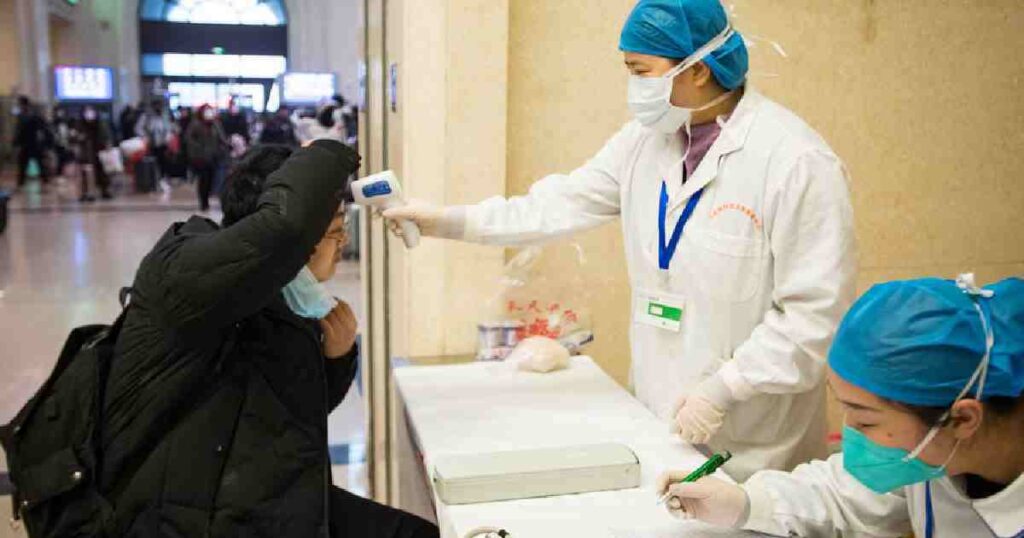The continuous spreading of Coronavirus is creating chaos among people. However, worrying can’t save us from the life-threatening disease COVID-19 caused by coronavirus. All we need to do is to stay aware and spread awareness among people of our home, neighbourhood and workspace as well as around the country about how to prevent the contamination of coronavirus.
Personal Hygiene Practices
– Use tissue paper while coughing, blowing your nose, and/or sneezing. Wrap your used tissue with another piece of clean tissue paper and dispose of them away properly in a covered dustbin.
– Wash off hands frequently with soap-water or alcohol (minimum 60 percent) based hand sanitiser.
– The coronavirus can spread through group meals. Try to avoid group meals to prevent contamination from person to person. And, it is recommended to use serving spoons during group meals, if you cannot avoid group meals.
– Keep the toilets clean and dry to prevent the contamination of coronavirus and other contagious diseases.
– Cleanse your hand after using common spots like lift buttons, door handles, calling bells, etc.
– Besides practicing hand sanitizing in homes, keep this facility in your car to prevent the risk of coronavirus infection through other passengers.
– If you experience any symptoms (including a fever, cough, sneezing, sore throat, or difficulty breathing) of Coronavirus COVID-2019, go for self-isolation for 14 days.
Communal Hygiene Practices
– While sneezing/coughing/blowing nose in a public place, use tissue for mouth-covering. However, if you don’t have any tissue, then try to cover your mouth-area with your elbow.
– After sneezing/coughing/blowing your nose, don’t leave your used tissue paper on the table expecting the cleaners to pick up later.
– Keep hand sanitiser in the ground floor/main entrance/guard room of your office/ residential building and make sure nobody can enter the building without cleansing their hands.
– Place hand washing facility next to vehicle (Car, and/or motor bike) washing places to facilitate the hygiene practice of common people.
– Use germs cleaner, like Dettol to clean the common places like floors, kitchen space, toilets area, railings of staircases, etc. at least three times a day to check coronavirus contamination.
– Regularly cleanse/wipe the tables, and other metal surfaces, like door knobs, lift-buttons, etc. of offices, commercial buildings, and markets at least three times a day to prevent germ spreading.
– Closely monitor the health situation of officials, guards, and other staff. Take medical support as soon as possible, if any member experiences the symptoms (including a fever, cough, sneezing, sore throat, or difficulty breathing) of Coronavirus (COVID-19) infection.
– If any person returns from overseas, especially from six countries like China, Iran, Italy, Thailand, South Korea, and Singapore, help them to stay in home-quarantine for a minimum of 14 days.
Some Preventive Measures:
– Take a healthy diet and essential vitamin supplements to strengthen the immune system to fight against coronavirus (COVID-19) infection.
– Carry essential hygiene staff like hand sanitizer and clean tissues to disinfect while staying in/outside home.
If you experience any symptom (including fever, cough, sneezing, sore throat or difficulty in breathing) for Coronavirus (COVID-19), call the IEDCR helpline numbers (01401184551, 01401184554, 01401184555, 01401184556, 01401184559, 01401184560, 01401184563, 01401184568, 01927711784, 01927711785, 01937000011, and 01937110011) to take immediate medical support and adopt home-quarantine, if recommended by the doctor.
– Be cautious about getting in close contact with any overseas returnee including those who are currently staying under home-quarantine.
– For further information click on this link to visit WHO’s coronavirus information page.
source: UNB (Rifat Tabassam)




